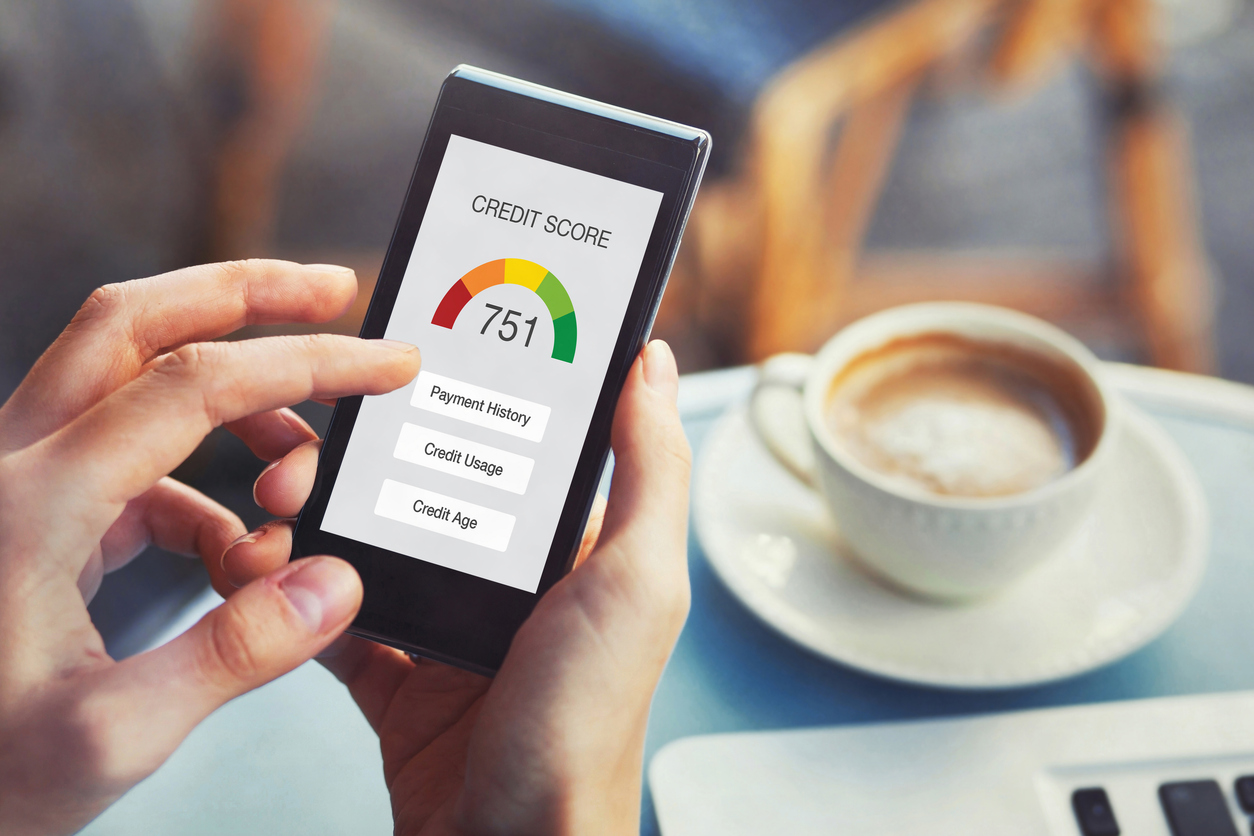Are you trying to obtain a home loan? Read this article to learn everything you should know about credit score for mortgage requirements.
Anyone working towards homeownership knows how obtaining a mortgage can be both exciting and challenging. And among all the factors that could sway the deal terms, credit score is the one that stands as a major player.
Credit score serves as a key indicator of financial health and responsibility. Lenders scrutinize the score to determine the risk associated with extending a loan. While a higher credit score typically translates to favorable mortgage terms and interest rates, a lower score can prevent you from securing financing.
In this article, I discuss the intricacies of credit scores and the role they play in mortgage requirements. Additionally, you will also find some tips to improve your score, to help you snag a good deal.
Why Does Credit Score Matter to Lenders?
Before getting to the minimum credit score for different home loans, let’s first understand why it matters.
Credit score actually serves as a key indicator of your ability to repay a loan, and here’s why it is important to lenders:
- Risk Assessment: Lenders use credit scores to assess the risk of lending money to a borrower. A higher credit score suggests lower risk, while a lower score indicates higher risk.
- Payment History: Credit scores reflect your payment history, showing whether you have consistently paid bills on time.
- Financial Responsibility: A good credit score indicates financial responsibility, demonstrating that you manage credit and debt obligations effectively.
- Loan Approval: Lenders often have minimum credit score requirements for loan approval. A higher score increases the likelihood of loan approval and may qualify borrowers for better terms and lower interest rates.
- Trustworthiness: A good credit score implies trustworthiness, influencing lenders’ confidence in your ability to repay the loan as agreed.
Credit Score for Mortgage Requirements for Different Home Loans
When it comes to buying a home, there are various types of mortgages available, each with its own set of criteria. Let’s explore what different types of mortgages are, and how they consider credit scores:
Conventional Loans
Minimum Credit Score: 620
Conventional loans adhere to loan limits set by the Federal Housing Finance Agency and follow credit score and down payment minimums by Fannie Mae and Freddie Mac.
with solid credit and a down payment typically qualify. While they allow you to make a slightly smaller down payment of 3%, the eligibility requirements are usually also stricter compared to government-backed mortgages. To qualify, the minimum credit score for conventional home loan should be at least 620, though higher scores yield better rates.
This is why, generally, people with a solid credit score typically qualify.
Jumbo Loan
Minimum Credit Score: 740
Jumbo loans are designed to finance amounts surpassing conforming loan limits set by the Federal Housing and Finance Agency. They differ from conventional mortgages in their coverage of larger-than-normal loan amounts.
Despite functioning similarly to traditional mortgages, offering fixed- or adjustable-rate options with varying terms, jumbo loans often carry higher interest rates due to their nonconforming status.
Qualifying for a jumbo loan demands a higher credit score, typically starting at 700, with an average of around 740. However, lower scores may be considered, particularly in cases of higher leverage.
FHA Loan
Minimum Credit Score: 580
An FHA loan, backed by the U.S. government, provides mortgage insurance for loans issued by FHA-approved lenders. It’s a popular choice for first-time homebuyers due to its low down payment requirements.
While FHA loans offer more lenient credit score criteria compared to conventional mortgages, a minimum FICO score of 580 is necessary for a 3.5% down payment. However, borrowers with scores between 500 and 579 may qualify with a higher down payment of 10%.
However, please remember that despite the FHA’s set minimum credit scores, many lenders still prefer at least 620 minimum credit score for FHA mortgages, potentially posing challenges for borrowers with lower credit scores.
VA Loan
Minimum Credit Score: none
VA mortgage loans are home loan products guaranteed by the U.S. Department of Veterans Affairs (VA) for eligible veterans, active-duty service members, and certain surviving spouses.
They offer benefits such as no down payment requirement and competitive interest rates. Unlike many conventional loans, VA loans do not have a minimum credit score requirement set by the VA. This flexibility makes VA loans accessible to a wide range of borrowers, including those with less-than-perfect credit histories.
However, it is essential to know that individual lenders may impose their own credit score requirements, with many preferring a score of around 620 or higher for VA loan approval.
USDA Loan
Minimum Credit Score: 620
A USDA loan, backed by the U.S. Department of Agriculture, is designed for low- to moderate-income homebuyers in eligible rural areas.
While the USDA itself does not set a minimum credit score requirement, most lenders prefer applicants to have a credit score of at least 640. This threshold helps lenders gauge the borrower’s creditworthiness and ability to repay the loan.
However, some lenders may be willing to work with borrowers who have lower credit scores, depending on their overall financial profile. Learn more from RefiGuide on USDA loan requirements.
How to Improve Your Credit Score Fast?
Improving your credit score is crucial for obtaining favorable loan terms and financial opportunities. Here are some tips to help you boost your credit score quickly:
1. Review Your Credit Reports
Start by obtaining copies of your credit reports. Scrutinize each report for errors or negative items that may be dragging down your score. Dispute any inaccuracies and ensure that all information is current and correct.
2. Get a Handle on Bill Payments
Ensure that you make timely payments on all your bills. Set up automatic payments or reminders to avoid missing due dates, as payment history accounts for a significant portion of your credit score.
3. Aim for 30% Credit Utilization or Less
Keep your credit card balances below 30% of your total credit limit. Maintaining a low credit utilization ratio demonstrates responsible credit management and positively impacts your credit score.
4. Limit Requests for New Credit
Avoid unnecessary credit applications to minimize hard inquiries on your credit report. Each hard inquiry can temporarily lower your score, so be selective about applying for new credit.
5. Make the Most of a Thin Credit File
If you have a limited credit history, explore alternative methods to build credit. Consider utilizing programs like Experian Boost or reporting rent payments to credit bureaus to bolster your credit profile.
6. Keep Old Accounts Open and Deal with Delinquencies
Maintain old accounts in good standing to demonstrate a longer credit history, as the age of your credit accounts influences your score. Address any delinquent accounts by catching up on payments and negotiating settlements if necessary.
7. Consider Consolidating Your Debts
Explore options for consolidating multiple debts into a single loan or credit card with a lower interest rate. Consolidation can simplify your payments and reduce overall debt, positively impacting your credit score.
8. Use Credit Monitoring to Track Your Progress
Regularly monitor your credit score with free credit monitoring services. Track your score’s progress over time and stay vigilant for any signs of fraudulent activity or errors on your credit report.
Following these actionable steps and maintaining responsible financial habits are sure ways of improving your credit score.
Frequently Asked Questions
What is a good credit score to buy a house?
A good credit score to buy a house typically falls within the range of 620 to 850 under the FICO model, with higher scores indicating better creditworthiness. Here are the FICO credit score grades:
- Excellent: 800 – 850
- Very Good: 740 – 799
- Good: 670 – 739
- Fair: 580 – 669
- Poor: 300 – 579
Generally, a credit score of 620 or higher is considered good for securing a mortgage, although specific lenders may have different criteria and may offer more favorable terms to borrowers with higher scores.
What is the minimum credit score for a mortgage?
The minimum credit score required for a mortgage varies by the type of loan, but on average, it’s around 650. However, specific lenders and loan programs may have different requirements, so it’s essential to research and understand the criteria for each option before applying.
What is the perfect credit score?
The perfect credit score is 850. Achieving this magic number involves maintaining a long history of on-time payments, keeping credit card balances low relative to credit limits, having a mix of different types of credit accounts, and minimizing the number of credit inquiries.
Consistently showing responsible financial behavior, and regularly monitoring credit reports can help maintain this perfect score.
Highlights on Mortgage Credit Score Requirements
I cannot overstate the importance of credit scores in the mortgage process, because the fact is that they heavily influence your loan eligibility and terms.
Different mortgage types vary in their credit score prerequisites, and thorough research and planning is essential for you to find the best mortgage lender. Other than that, you can also use the tops mentioned in the article to improve your credit score.
So, prioritize financial responsibility, adopt proactive credit management strategies, and prepare for successful mortgage approval.




